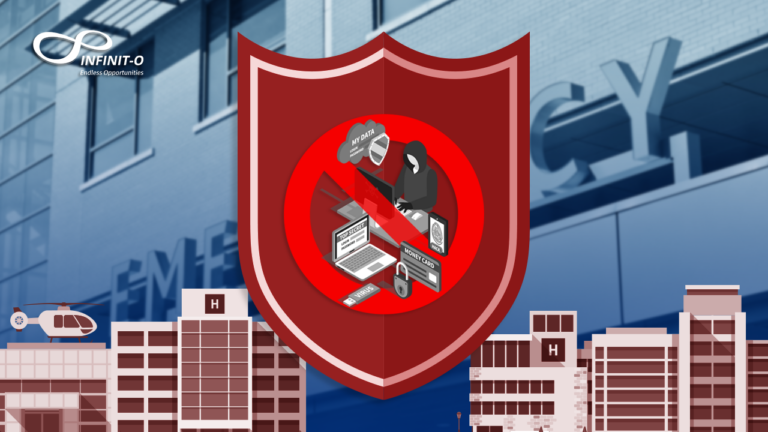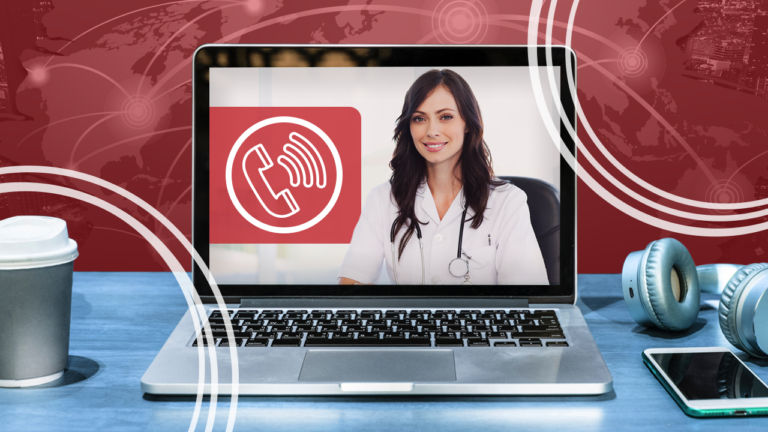How to Empower Patients while Securing Data in Healthcare
Patient empowerment is an integral part of the modern healthcare system that enables patients to assert greater control over their health and make informed decisions about the care they receive. Having accurate medical data accessible for patients is the key to their empowerment.
In the past, the doctors’ consultation notes are filed away and seldom seen by the concerned patients. There is no organized method for doctors and patients to communicate and monitor follow-up care. The rise of new digital technologies in healthcare, such as Electronic Health Records (EHR) through patient portals has resulted to a renewed focus on security, scalability, and cost efficiency.
What are Patient Portals?
Patient portals are essential technological platforms that support patient-centered care. They are typically web-based applications administered by a health care institution that are integrated to the EHR system. They promote efficient access to comprehensive medical care information, encourage participation in healthcare decision-making, and allow patients to take ownership of their health.
Research shows that when patients are able to monitor their own health data, they become empowered about their own wellness. They become better prepared to interact with their health providers concerning their treatment plans and get the best patient care experience that they deserve.
The primary benefits of patient portals include:
- Booking doctor appointments and refilling medication prescriptions
- Communicating faster between providers and patients especially the critically ill
- Correcting errors in patient data such as name, address, and other personal information
- Making express online payments for both medical biller and patient
- Sending emails such as appointment reminders and electronic statements
- Updating insurance records and contact information
- Viewing laboratory results, medical history, and personal health records
Although patient portals are convenient in facilitating communication between patients, their physicians, and their medical devices, they are also prone to cyber security risk because unsecured connections are often used to transmit data. This means the medical records and other personal health information can be hijacked by cyber thieves.
Why Healthcare is a Prime Target for Hackers?
The healthcare industry is a prime target for cybercrimes. Hackers utilize advance ransomware that denies access to a device or files until a ransom has been paid. They install malware to manipulate patient data and steal personal information that may be used for fraud. Healthcare institutions are prone to cyberattacks because some of their embedded systems are not patched regularly. Moreover, this industry is home for large Fortune 500 healthcare organizations that require extensive use of digital records and Social Security numbers for transactions.
The Health Insurance Portability and Accountability Act (HIPAA) has established the national standards for electronic healthcare transactions that aims to protect the privacy of patients’ personal health records. HIPAA regulations place a huge responsibility on health care organizations that have access to EHR. Penalties for noncompliance may range from $100 to $50,000 depending on the level of negligence, with maximum penalty of up to $1.5 million.
Healthcare providers can reduce their cyber security risk with the following tips:
1. Deputize a Certified HIPAA security officer
This key official is primarily responsible for developing and implementing HIPAA privacy policies and procedures, as well as serves as the contact person for receiving complaints and providing individuals with information on the company’s privacy practices and cyber security standards. The officer is also responsible for conducting HIPAA Audit Protocol monitoring and data security self-assessments to assure compliance.
2. Develop Cyber Security action plans
Create cybersecurity processes that should be seamless and applied throughout your entire information technology ecosystem. Always follow all the appropriate security mechanisms and standards before transmitting any patient information. Ensure that patient health records are always encrypted when transmitted. Log on to the patient portal only from a secure computer and always protect your username and password.
3. Enforce Company-wide Policies and Procedures on Data Security
Implement data security protocols in your organization, including patient portals, data centers, transmission channels, and software and hardware systems. Perform security audits in your social media accounts, websites, page content offers, email communications, USB drives, servers, and back-up data storages to manage security risks.
4. Conduct data security awareness campaigns
Patient data security is paramount and any breech can put your healthcare company, medical professionals, and patients at serious risk. Institute company-wide security awareness training initiatives, including training sessions, helpful hints via email against phishing attacks, and other methods that can help ensure employees have a solid understanding of company data security policy, procedures, and best practices.
5. Consult with certified HIPAA Compliance Experts
Cost-effectiveness and comprehensive data security concerns are among the challenges that health care providers face in considering cyber security solutions. One way to address cost and security issues is to engage Healthcare IT Outsourcing to a trusted and HIPAA-compliant third-party provider. Outsourcing is cost efficient and can help ensure that your EHR system is safe from data security threats and handled by experts in the field who have premium security systems and standards.
Does Your Organization Need a Healthcare Cybersecurity Solution?
The rapidly changing cyber landscape makes privacy and security threats a growing issue. Taking a multilayered approach to data security and investing on IT infrastructure can be daunting for health providers. Hospitals that suffer a major data breach could result in reputational damage, expensive litigation, and market lost.
Infinit-O is the trusted customer-centric and sustainable leader in Business Process Optimization to Small and Medium businesses in the Financial Services, Healthcare and Technology sectors by delivering continuous improvement through technology, data and people.
Our certified HIPAA compliance experts have the in-depth knowledge of the HIPAA privacy laws and regulations who can assist you in developing HIPAA-related strategies and business plans. Contact us today and we’ll be happy to help keep your organization HIPAA compliant.







This site is protected by reCAPTCHA and the Google Privacy Policy and Terms of Service apply.